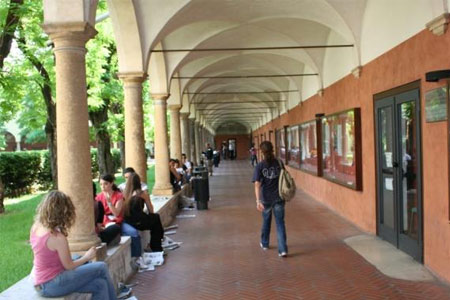- Didattica

Semestre filtro
Corsi di laurea
Corsi di laurea magistrale
- Facoltà
- Segreterie e sedi

Segreterie
Strutture
- Persone
- MY UNIVR
-

 cristani
cristani univr
univr it
it
Modules running in the period selected: 0.
Click on the module to see the timetable and course details.
There you will find information, resources and services useful during your time at the University (Student’s exam record, your study plan on ESSE3, Distance Learning courses, university email account, office forms, administrative procedures, etc.). You can log into MyUnivr with your GIA login details: only in this way will you be able to receive notification of all the notices from your teachers and your secretariat via email and also via the Univr app.
MyUnivr| Topic | Description | Research area |
|---|---|---|
| Computer forensics | Accanto a discipline classiche quali il tracking e l'object detection per la sorveglianza, l'interesse è centrato su social signal processing. In questo settore l'obiettivo è di riuscire a catturare sotto forma di features i segnali sociali, ossia quei segnali che l'essere umano usa, spesso inconsciamente, per comunicare in maniera puramente non verbale con l'ambiente esterno (persone, interfacce). Tutto questo si traduce in parole chiavi quali feature design, feature learning, socially-driven features, social psychology models, proxemics, data fusion. Le applicazioni risultanti trovano naturalmente spazio nella sorveglianza, ma anche in ambito medico e multimediale. |
Intelligent systems and analytics
Sistemi intelligenti e analisi di dati |
| Image processing and computer vision | Basic image processing, e.g. image enhancement, interpolation (digital zooming). Image processing applied to medical images, 2D and 3D segmentation, feature extraction, texture analysis. Optical flow extraction and processing. |
Intelligent systems and analytics
Sistemi intelligenti e analisi di dati |
| Sistemi avanzati per il riconoscimento | Due sono gli ambiti principali di ricerca: 1) studio di descrittori di basso livello per addestrare classificatori avanzati; in questo caso, l'idea è di progettare descrittori compatti e informativi per l'object recognition e detection. Particolare enfasi viene data allo studio di descrittori giacenti su spazi non euclidei, come varietà Riemanniane, manipolando nozioni di Information Geometry 2) studio di tecniche di classificazione ibride generative e discriminative; qui l'obiettivo è di sfruttare le caratteristiche vincenti dei modelli generativi (misture di Gaussiane, modelli di Markov a stati nascosti, topic models) e dei modelli discriminativi (Support Vector Machines) combinandole attraverso meccanismi di embedding. In tal maniera, le misure di bontà dei classificatori risultanti superano quelle dei modelli di partenza. |
Intelligent systems and analytics
Sistemi intelligenti e analisi di dati |
| Video Surveillance and Monitoring | This research aims at the analysis of people and the interpretation/recognition of human activities, possibly at the detection and prediction of events in unconstrained scenes, at individual, group and crowd level. In particular, the main target is on the analysis of nonverbal human behaviour, activities, and dialogue classification by considering vocal behavior, face & gazing, gesture & posture, space & environment. More specifically, the focus is on tracking and re-identification, object/person detection and classification, human pose estimation and activity recognition, automatic PTZ camera control, subjective surveillance, mobile sensing, data fusion. |
Intelligent systems and analytics
Sistemi intelligenti e analisi di dati |
© 2002 - 2026
Verona University
Via dell'Artigliere 8, 37129 Verona |
P. I.V.A. 01541040232 |
C. FISCALE 93009870234